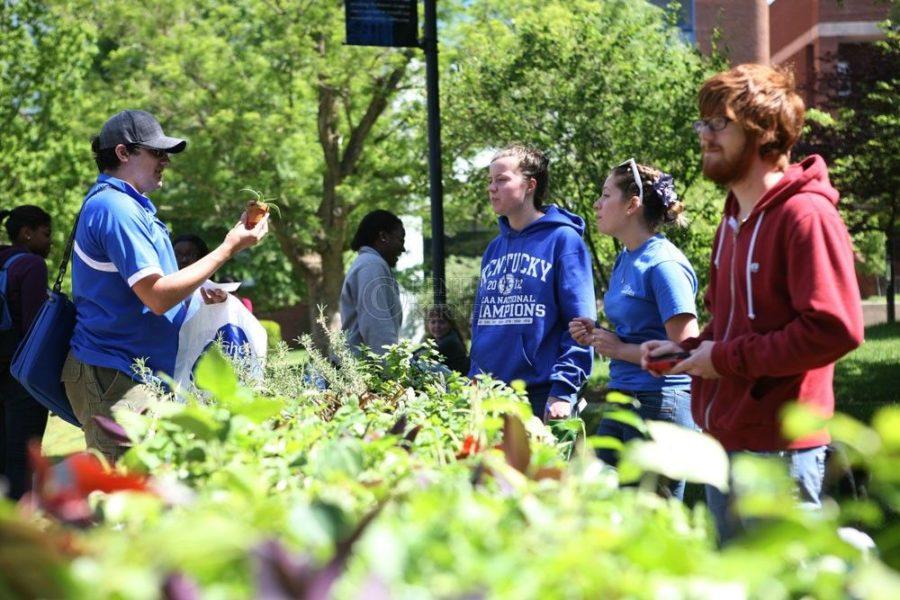Ag Awareness Day educates students about the industry’s impact
April 19, 2012
The College of Agriculture held its Ag Awareness Day Wednesday, educating on the industry’s broad impact.
National Agriculture day was March 8, right before spring break.
“We couldn’t actually celebrate then, so now we are,” said Jason Headrick, director of student relations in the College of Agriculture and coordinator of the event.
Headrick said the event is a student effort to raise awareness.
“Agriculture expands across all aspects of food, fiber, family, community and environment,” he said.
There are a variety of majors offered within the college.
“We’ve got corn and wheat, beef, pork,” Headrick said, “But our college is a mix of a lot of different majors and programs that go beyond the traditional cows and plows that people associate with ag.”
Sustainable agriculture is one of the majors available.
“They’re involved in the farmers market, and there’s also a Community Supported Agriculture project, where students can buy shares and get fresh vegetables delivered each week,” Headrick said.
Polly Symons, a sustainable agriculture senior, discussed different approaches to food, including cooking, eating together and buying locally.
“We want to educate the student population to have a different food experience,” Symon said as she sat at the UK chapter of Slow Food.
“Slow Food educates the public on the social, environmental and health risks of the mechanization and homogenization of our farms and food,” according to its Facebook page. The movement began in the 1980s by Italian journalist and food advocate Carlo Petrini.
“We want to educate not specifically ag majors, but all majors,” said Michael Blum, math and mechanical engineering freshman.
Though agriculture serves many purposes beyond food, Blum said he thinks people should learn to grow their own food.
“We have community gardens around campus and Thursday we’ll be passing seeds on campus and hosting a free local food dinner,” he said.
Agricultural efforts include fighting poverty.
Heifer, an international organization, helps provide cows, seeds and other means of assistance to let communities raise money and live sustainably.
“When a cow gives birth to a female, they give it to someone else in the community,” Joshua Knight of Slow Food said. “Heifer facilitates providing them with resources and they help build infrastructure.”
The students at the family and consumer sciences table said their efforts are all about service outreach.
“It seems to be going downhill and we’re trying to bring it back to life,” said Kayla Brackman, human nutrition freshman.
Racheal Chihak, family studies junior, said home economics courses don’t cover the whole spectrum.
“It involves financials and other aspects, not just sewing,” she said.
Agricultural biotechnology juniors Rebecca Hall and Madison Wallace are coming up with more innovative ideas.
Hall has been working with poultry to find alternative ways to grow chickens.
“It’s all about producing more in less time,” Hall said, who has found a relationship between zinc absorption and growth speed, “It’s more natural.”
Carrie Butts, plant and soil science senior, said this is a progressive time in agriculture.
“We’re discovering how to improve the production system to meet the demands of a growing population,” she said.
The Kentucky Dairy Development Council had a table advocating three servings a day.
“We want to show that we have a face on campus and that we’re behind the different commodities that people wouldn’t know about,” said Willie Campbell of the council. “Ag touches all of us.”
Headrick said most importantly, he wants to inform people about agriculture’s impact.
“At the end of the day and program, we want people to realize the impact that agriculture has on their life and how truly broad the agriculture industry is, especially in our UK College of Agriculture,” Headrick said.
































































































































































